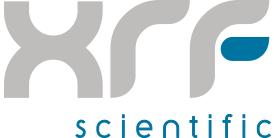Latest News
News
Orbis Laboratory Jaw Crushers
Introducing Orbis Laboratory Jaw Crushers. Our Orbis range consists of dual acting fine crushers, designed by experts with decades of experience in sample preparation. Our flagship OM100 can take core samples down to 2mm in a single pass.
...
The Different Types of Laboratory Crucibles
Laboratory crucibles have been designed to bear extremely high temperatures and as such they must be made of robust materials. Laboratory crucibles are small utensils that are used for conducting high-temperature chemical reactions and analyses.
This article will outline some different types of laboratory crucibles, their benefits, and their uses.
Materials used for Laboratory Crucibles
Porcelain
Porcelain is an extremely economical material that can withstand sudden temperature changes. Laboratory crucibles made from this material have good chemical and acid resistance, are low cost, and can be used in temperatures up to 1050°C. However, porcelain laboratory crucibles are incompatible with HF and alkali salts.
A laboratory crucible is a container that can endure extremely high temperatures, is used to stop metals, glass, and pigment from melting in a furnace. Laboratory crucibles are used in metal casting experiments and are made of materials that have a far higher melting point than the materials that are being melted within, with high strength even at extremely high temperatures. Laboratory crucibles are a fundamental part of laboratory equipment and are also quite valuable. This is why laboratory crucibles must be used and maintained correctly so that they have the highest possible service life. Using Laboratory Crucibles Effectively It is important to be vigilant when using the crucibles and ensuring they are treated safely. Laboratory crucibles shoul...
How to Use and Maintain Laboratory Crucibles










